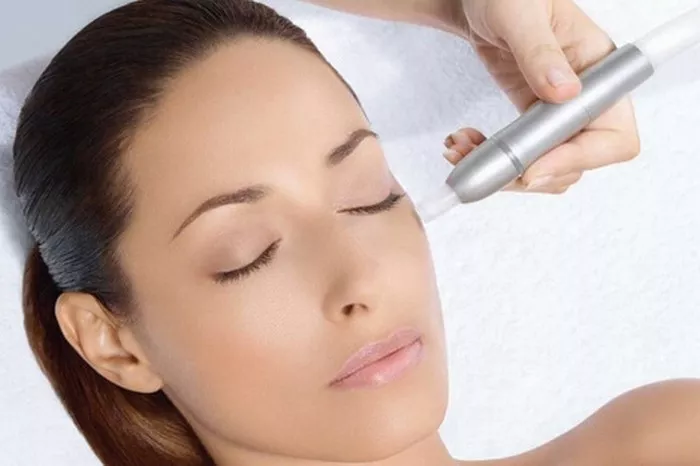Microdermabrasion is a popular skincare procedure that can help rejuvenate your skin, leaving it smoother, brighter, and more youthful. To ensure a successful microdermabrasion treatment and achieve the best possible results, proper preparation is essential. In this article, we will guide you through what to do before a microdermabrasion session, from selecting a qualified skincare professional to preparing your skin for the procedure.
Research and Choose a Qualified Skincare Professional
Before scheduling your microdermabrasion treatment, take the time to research and choose a qualified and experienced skincare professional. Here are some steps to consider:
a. Seek Recommendations: Ask for recommendations from friends, family, or trusted healthcare providers. Personal referrals can help you find a reputable practitioner.
b. Check Qualifications: Ensure that the skincare professional is licensed and certified to perform microdermabrasion. They should have relevant training and experience in the procedure.
c. Read Reviews: Look for online reviews and testimonials from previous clients to gauge the practitioner’s reputation and the quality of their services.
d. Schedule Consultations: Book consultations with potential practitioners to discuss your skincare goals, concerns, and expectations. Use this opportunity to assess their expertise and communication skills.
Discuss Your Medical History
During your consultation with the skincare professional, be prepared to provide a comprehensive medical history. This information is crucial to ensure your safety and the effectiveness of the treatment. Key details to disclose include:
a. Previous Skin Treatments: Inform the practitioner about any previous skincare treatments, including chemical peels, laser therapies, or other cosmetic procedures.
b. Medications: List any prescription medications, over-the-counter drugs, supplements, or herbal remedies you are currently taking. Some medications may affect your skin’s sensitivity or the microdermabrasion process.
c. Skin Conditions: Mention any skin conditions you have, such as acne, rosacea, eczema, or psoriasis. Your practitioner can adjust the treatment plan accordingly.
d. Allergies: Be sure to disclose any allergies you have, especially if you are allergic to certain skincare products or ingredients.
Avoid Sun Exposure
It’s essential to protect your skin from sun exposure in the weeks leading up to your microdermabrasion appointment. Excessive sun exposure can make your skin more sensitive and prone to post-treatment complications like hyperpigmentation. Follow these guidelines:
a. Use Sunscreen: Apply a broad-spectrum sunscreen with an SPF of at least 30 daily, even on cloudy days. Make sure to reapply it throughout the day, especially if you spend time outdoors.
b. Wear Protective Clothing: Whenever possible, wear protective clothing like long sleeves, wide-brimmed hats, and sunglasses to shield your skin from harmful UV rays.
c. Avoid Tanning: Steer clear of tanning beds and sunbathing. Both can damage your skin and increase the risk of adverse reactions after microdermabrasion.
Discontinue Certain Skincare Products
To prepare your skin for microdermabrasion, it’s essential to discontinue the use of specific skincare products in the days leading up to your treatment. These products can make your skin more sensitive and prone to irritation. Follow these guidelines:
a. Retinoids: Stop using retinoid-based products, such as retinol or prescription retinoids, at least one week before your microdermabrasion session.
b. Exfoliants: Avoid using harsh physical or chemical exfoliants, such as scrubs and alpha hydroxy acids (AHAs), for several days before your treatment.
c. Acne Medications: If you use topical acne medications containing benzoyl peroxide or salicylic acid, consult your practitioner about discontinuing them temporarily.
d. Prescription Skincare: If you are using prescription skincare products, such as tretinoin or tazarotene, follow your practitioner’s instructions on when to discontinue use.
Stay Hydrated
Proper hydration is essential for maintaining healthy skin and facilitating the recovery process after microdermabrasion. Drink an adequate amount of water daily to keep your skin hydrated from the inside out. Well-hydrated skin is more resilient and less likely to experience dryness or flakiness after the procedure.
Arrive with Clean Skin
On the day of your microdermabrasion session, arrive with clean, makeup-free skin. Cleansing your face removes any dirt, oil, or makeup that may interfere with the effectiveness of the treatment. Your practitioner will also cleanse your skin before beginning the procedure to ensure optimal results.
Prepare for Possible Downtime
While microdermabrasion is a non-invasive procedure with minimal downtime, your skin may appear slightly red or feel sensitive after the treatment. It’s a good idea to prepare for this possibility by:
a. Clearing Your Schedule: If possible, schedule your microdermabrasion appointment on a day when you can relax afterward and avoid immediate exposure to harsh environmental factors like wind and extreme cold.
b. Gentle Skincare: Plan to use gentle skincare products post-treatment, including a mild cleanser, moisturizer, and sunscreen.
c. Avoiding Harsh Treatments: Avoid using harsh skincare products, such as exfoliants or abrasive scrubs, for at least a few days after your session.
Conclusion
Preparing for a microdermabrasion session is essential to ensure a safe and effective treatment. By choosing a qualified skincare professional, discussing your medical history, protecting your skin from sun exposure, discontinuing specific skincare products, staying hydrated, arriving with clean skin, and preparing for possible downtime, you can enhance the overall experience and maximize the benefits of microdermabrasion.
Always follow your practitioner’s recommendations and post-treatment care instructions for the best results. With proper preparation and aftercare, you can enjoy smoother, more radiant skin and achieve your skincare goals with confidence.


